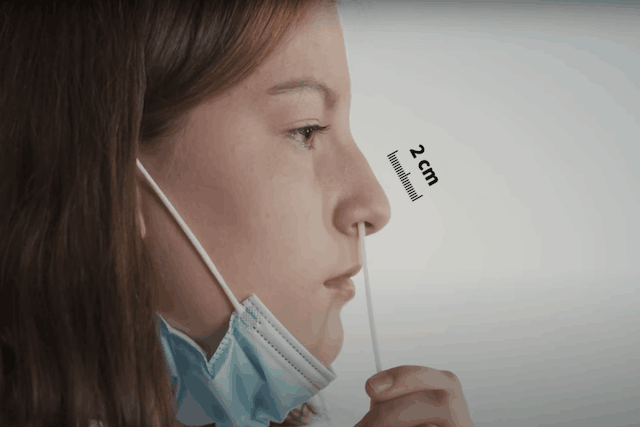Prior to the Easter break, the ministry had organised a pilot project at six schools to deploy the rapid antigen tests. They helped detect five cases of Sars-CoV-2, which were all confirmed by a PCR test. Around 90% of the student population at the schools took part in the test programme.
The scheme will now be expanded to schools across Luxembourg, where pupils and staff will be offered the option to take one test per week, education minister Claude Meisch (DP) said during a press conference on Thursday. There are enough kits available until the summer holiday.
Pre-school children--cycle 1 in the Luxembourg school system--will be given the tests to take home. The ministry has published a video on how to use them and a website with further information. Parental consent will be required for tests taken on school premises.
Meisch urged school communities to keep taking part in large-scale testing in addition to the rapid antigen tests, saying the latter are an additional tool to prevent infection chains but don’t replace other preventative measures.
Romain Nehs, an education ministry official, during the press conference said that more contagious virus variants have led to an increased risk of clusters within schools. Isolation and quarantine rules as well as a general mandate to wear masks have helped stabilise cases, he said.
Prior to the Carnival school holiday week in February, the government had closed schools in favour of home schooling after detecting a growing number of virus clusters among pupils and staff.
The number of infections in schools rose over the course of last month, going from 308 in the first week of March, to 337 in the week of 8 to 14 March, 397 in the week from 15 to 21 March, 425 between 22 and 28 March, and 415 between 29 March and 4 April. In most cases, however, infections were limited to one or two individuals in the class.
Students in the upper secondary years continue alternating between classroom teaching and home schooling.
Schools will be the last environment in which a majority of people won’t be vaccinated, Meisch said. Teachers were not given priority status in Luxembourg’s vaccination campaign and are being invited according to their age or risk group set out in the government’s strategy.
Vaccines authorised by the EMA and in use in the EU are not yet approved for children and teenagers below the age of 16 with clinical trials still ongoing. Meisch said that as the vaccination campaign progresses, the risk of schools becoming virus strongholds would need to be reassessed.
